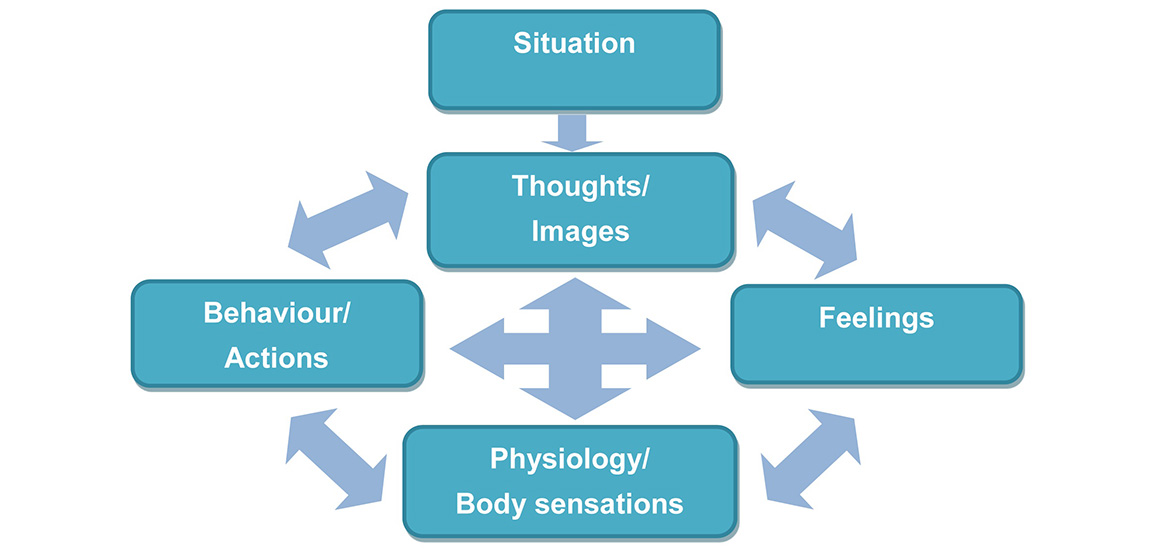Cognitive Behavioural Therapy
Definition:- (taken from www.babcp.com)
Cognitive behavioural therapy, or CBT, is a talking therapy based on the theory that thoughts, feelings, behaviours and physical symptoms are all connected. It works on the theory that if we change one of these we can alter the others.
When people feel worried or distressed they often fall into patterns of thinking and responding which can worsen how they feel. CBT works to help them notice and change problematic thinking styles or behaviour patterns so they can feel better. CBT has lots of strategies that can help in the here and now.
My Definition:-
CBT focuses on changing unhelpful styles of thinking or behaving in order to help someone feel better and relieve their physical symptoms.
What might a session be like?
Each session will usually start with you completing a written agenda with your therapist for that session’s work. You will then work towards that agenda together. You may be asked to complete worksheets that are related to your issues. Work done in-between sessions (homework) is often involved and you will then review the work with your therapist in the next session. Sessions are usually structured.
If the CBT is short-term (6-12 sessions) you will usually be focusing on changing your current thinking patterns and the behaviour that they lead to. You may not talk about any past events in detail.
Who may benefit from CBT?
Anyone can benefit from CBT. It is often offered in the NHS for clients suffering from anxiety disorders (including panic attacks and post-traumatic stress disorder), depression, obsessive compulsive disorder (OCD) and other mental health issues.
CBT would possibly suit clients who like structure and action. There are often written exercises and homework involved.
There will also most likely be a difference if you access CBT from the NHS to the CBT you might access privately. Because the NHS’s form of CBT is short-term it usually only focuses on the present however, if you go to a private CBT therapist they may also explore your past and how that is affecting you presently. Again – always ask your therapist how they work as everyone is different. If it doesn’t sound like something that would be helpful for you then try someone else.
I am trained in CBT as well and do find the techniques to be effective with some clients whereas others do not find them useful. As with everything in life one size does not fit all. Sometimes a person is fully aware of the more rational thoughts they ‘should’ be thinking but there is a barrier that is keeping them stuck. You will most likely be offered CBT if you are using the NHS’s Talking Therapy service IAPT. If you find it useful, fantastic, however if you don’t, you can ask if they offer another form of therapy. Don’t give up entirely.
Note
CBT is one of the most widely offered talking therapies on the NHS. The main reason why CBT is more widely advocated is because of the way that it can be structured. What I mean by this is that CBT can be used in a more prescriptive way than most other therapy styles. For example – if anyone came to see a CBT therapist for social anxiety the therapist would have a set agenda for each of the sessions. Because of this structured approach it has been easier for the governing bodies like NICE(National Institute for Health and Care Excellence) to claim evidence. As most of the other approaches are not as structured and work differently depending on each client it is harder for them to be formally judged. However, NICE are now starting to recognise this and other styles of therapy, such as counselling, are being offered on the NHS.






Sorry, the comment form is closed at this time.